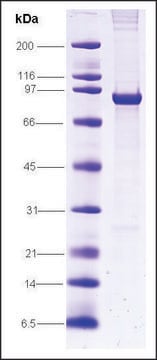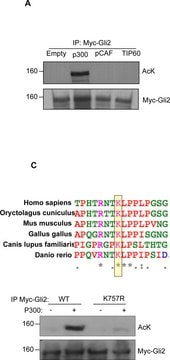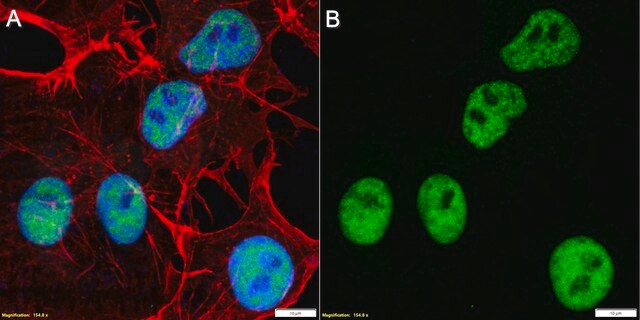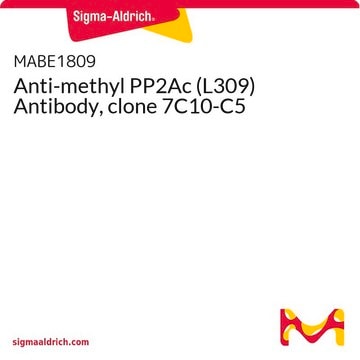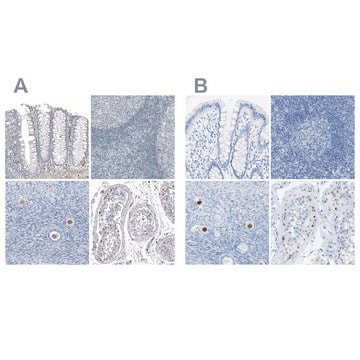MABF121
Anti-SV40 Large T Antigen Antibody, clone PAb416
clone PAb416, from mouse
Szinonimák:
Large T antigen, LT, LT-AG
About This Item
Javasolt termékek
biológiai forrás
mouse
Minőségi szint
antitest forma
purified antibody
antitest terméktípus
primary antibodies
klón
PAb416, monoclonal
faj reaktivitás
SV40-infected cells
technika/technikák
immunocytochemistry: suitable
western blot: suitable
izotípus
IgG2aκ
NCBI elérési szám
UniProt elérési szám
kiszállítva
wet ice
célzott transzláció utáni módosítás
unmodified
Általános leírás
Egyediség
Immunogen
Alkalmazás
Inflammation & Immunology
Immunoglobulins & Immunology
Minőség
Western Blot Analysis: 1 µg/mL of this antibody detected SV40 Large T Antigen in 10 µg of Cos-1 cell lysate.
Cél megnevezése
Fizikai forma
Tárolás és stabilitás
Analízis megjegyzés
Cos-1 cell lysate
Egyéb megjegyzések
Jogi nyilatkozat
Nem találja a megfelelő terméket?
Próbálja ki a Termékválasztó eszköz. eszközt
Tárolási osztály kódja
12 - Non Combustible Liquids
WGK
WGK 1
Lobbanási pont (F)
Not applicable
Lobbanási pont (C)
Not applicable
Analitikai tanúsítványok (COA)
Analitikai tanúsítványok (COA) keresése a termék sarzs-/tételszámának megadásával. A sarzs- és tételszámok a termék címkéjén találhatók, a „Lot” vagy „Batch” szavak után.
Már rendelkezik ezzel a termékkel?
Az Ön által nemrégiben megvásárolt termékekre vonatkozó dokumentumokat a Dokumentumtárban találja.
Tudóscsoportunk valamennyi kutatási területen rendelkezik tapasztalattal, beleértve az élettudományt, az anyagtudományt, a kémiai szintézist, a kromatográfiát, az analitikát és még sok más területet.
Lépjen kapcsolatba a szaktanácsadással